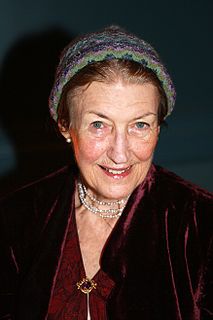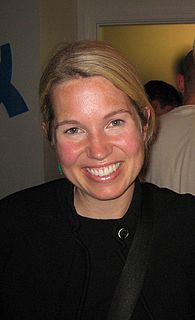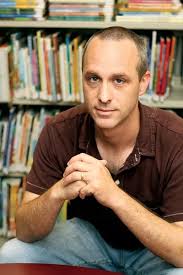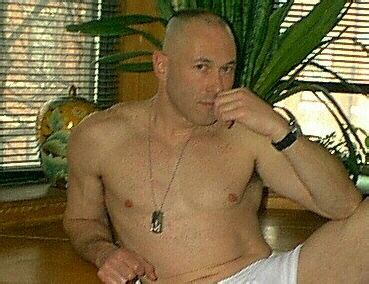A Quote by Shirley Hazzard
In the circle where I was raised, I knew of no one knowledgeable in the visual arts, no one who regularly attended musical performances, and only two adults other than my teachers who spoke without embarrassment of poetry and literature — both of these being women. As far as I can recall, I never heard a man refer to a good or a great book. I knew no one who had mastered, or even studied, another language from choice. And our articulate, conscious life proceeded without acknowledgement of the preceding civilisations which had produced it.
Quote Topics
Acknowledgement
Adults
Another
Articulate
Arts
As Far As
Attended
Being
Book
Both
Choice
Circle
Conscious
Embarrassment
Even
Far
Good
Great
Great Book
Had
Heard
Knew
Knowledgeable
Language
Life
Literature
Man
Mastered
Musical
Musical Performance
Never
Only
Other
Our
Performances
Poetry
Produced
Raised
Recall
Refer
Regularly
Spoke
Studied
Teachers
Than
Two
Visual
Visual Art
Visual Arts
Which
Without
Women
Related Quotes
This was exactly what the girl had most dreaded all her life and had scrupulously avoided until now: lovemaking without emotion or love. She knew that she had crossed the forbidden boundary, but she proceeded across it without objections and as a full participant; only somewhere, far off in a corner of her consciousness, did she feel horror at the thought that she had never known such pleasure, never so much pleasure as at this moment--beyond that boundary.
Now when I had mastered the language of this water, and had come to know every trifling feature that bordered the great river as familiarly as I knew the letters of the alphabet, I had made a valuable acquisition. But I had lost something, too. I had lost something which could never be restored me while I lived. All the grace, the beauty, the poetry, had gone out of the majestic river!
Art and poetry cannot do without one another. Yet the two words are far from being synonymous. By Art I mean the creative or producing, work-making activity of the human mind. By Poetry I mean, not the particular art which consists in writing verses, but a process both more general and more primary: that intercommunication between the inner being of things and the inner being of the human Self which is a kind of divination (as was realized in ancient times; the Latin vates was both a poet and a diviner). Poetry, in this sense, is the secret life of each and all of the arts.
It took a pretty drastic moment to shift my thinking towards visual arts. I got to a moment in my writing career when I wasn't trusting the language, I was really not trusting the written language, the English language. How do you work with a material that you don't have trust in? I had to step away from it and find another way of articulating and I had to do it without words.
Dr. Adler had instructed me to always say whatever I was thinking, but this was difficult for me, for the act of thinking and the act of articulating those thoughts were not synchronous to me, or even necessarily consecutive. I knew that I thought and spoke in the same language and that theoretically there should be no reason why I could not express my thoughts as they occurred or soon thereafter, but the language in which I thought and the language in which I spoke, though both English, often seemed divided by a gap that could not be simultaneously, or even retrospectively, bridged.
I feel that if I had not had an art program in my school, I would have failed in a big way. My teachers knew I was intelligent, but they didn't quite know how I was ever going to apply that intelligence. The one or two teachers who knew me well knew that it would be through drawing or acting or whatever means of expression I was allowed.
Once I knew that I wanted to be an artist, I had made myself into one. I did not understand that wanting doesn't always lead to action. Many of the women had been raised without the sense that they could mold and shape their own lives, and so, wanting to be an artist (but without the ability to realize their wants) was, for some of them, only an idle fantasy, like wanting to go to the moon.
My skills weren't that I knew how to design a floppy disk, I knew how to design a printer interface, I knew how to design a modem interface; it was that, when the time came and I had to get one done, I would design my own, fresh, without knowing how other people do it. That was another thing that made me very good. All the best things that I did at Apple came from (a) not having money, and (b) not having done it before, ever. Every single thing that we came out with that was really great, I'd never once done that thing in my life.
So is not mathematical analysis then not just a vain game of the mind? To the physicist it can only give a convenient language; but isn't that a mediocre service, which after all we could have done without; and, it is not even to be feared that this artificial language be a veil, interposed between reality and the physicist's eye? Far from that, without this language most of the initimate analogies of things would forever have remained unknown to us; and we would never have had knowledge of the internal harmony of the world, which is, as we shall see, the only true objective reality.
No sooner had he thought this than he realized what was anchoring his happiness. It was purpose. He knew what he wanted to do. He knew the way he thought things should be, and Mr. Harinton was proving that other people--even adults--could feel the same way. Nicholas had something to aim for now. He might not know what he wanted to be when he grew up, but he knew with absolute certainty how he wanted to be.
I know who you are in your heart,' Andres said. 'That's all that matters.' And that was it. That was the moment. Now I knew how I would feel if I ever lost him. That was how you knew love. My mother had told me that. All you had to do was imagine your life without the other person, and if the thought alone made you shiver, then you knew.







































